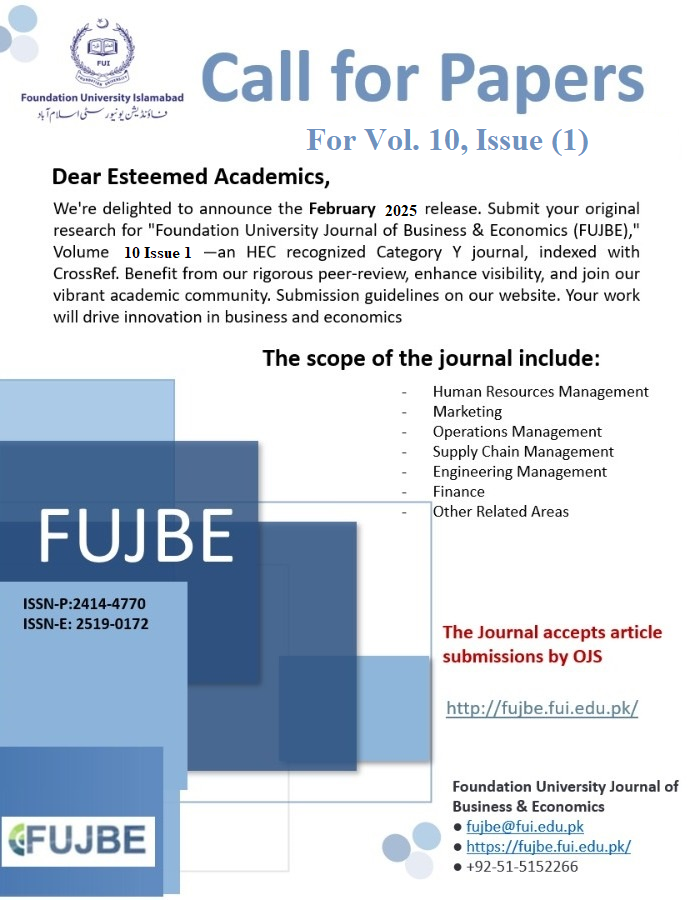Linkage of Organizational Justice and Employees Cognitive Work Engagement: Power Distance Orientation Matters
DOI:
https://doi.org/10.33897/fujbe.v6i1.437Keywords:
Procedural Justice, Distributive Justice, Interactional Justice, Informational Justice, Power Distance, Employee Cognitive Work EngagementAbstract
This study aims to examine the impact of four dimensions of organizational justice on employees’ cognitive work engagement with the moderating role of power distance. Using convenience sampling technique, a survey of 307 employees in the telecom sector of Pakistan was carried out in the cities of Rawalpindi and Islamabad. Data were gathered using self-administered questionnaires. SPSS and Smart PLS have been used for data analysis.The findings reveal that procedural, distributive, and informational justice are effective in determining cognitive work engagement of employees whereas interactional justice does not influence cognitive work engagement. Moreover, power distance moderates the relationship between procedural and interactional justice and cognitive work engagement but it does not moderate the relationship between distributive and informational justice and cognitive work engagement of employees in the telecom sector of Pakistan. The study implication, limitations, and suggestions for future research have also been discussed.



